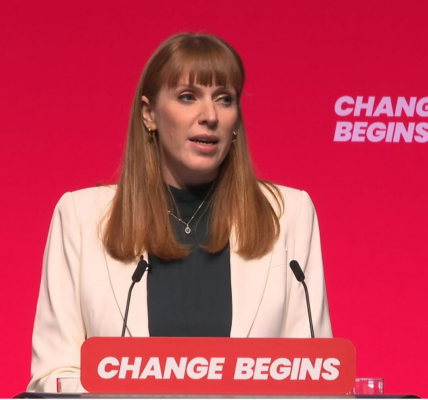Attorney General’s shameful role in Chagos Islands’ fiasco sets a dangerous precedent – that the UK is prepared to have our sovereign rights eroded through lawfare_Nhy
The strategic significance of the Chagos archipelago in the Indian Ocean can hardly be overstated.
After all, Diego Garcia the largest of the islands, has been a crucial airbase for many decades. After the 9/11 attacks, it was from Diego Garcia that Nato planes took off to strike Taliban targets in Afghanistan.
Yet today, in a remarkable display of short-sightedness, the British Government has embarked on a path that will see us surrender control of the whole archipelago to Mauritius, a ‘swing state’ in the global competition for influence that has seen China build ever-growing support among our former partners.
The giveaway threatens to undermine Western security interests in a critical region while setting dangerous precedents. No wonder the new Trump administration in Washington is concerned.
Inspired by the legalistic zealotry that runs through the heart of Labour’s hierarchy – and personified in the defeatist figure of Richard Hermer KC, the Attorney General – the decision has been wrapped in a series of ever-shifting and increasingly dubious rationales.
Yet much of it is politics masquerading as law.
The consequences of Hermer’s hopeless attitude were spelled out this month in a paper from the Policy Exchange think tank.
The authors – academics and legal scholars – outlined the many flaws in the case that Hermer tries to make. They point to his convoluted and inaccurate reading of UN agency powers, to the political basis of a judgment by the International Court of Justice (ICJ) which – you won’t be surprised to hear – was not only merely advisory but decided on by judges who see nothing wrong with Russia’s invasion of Ukraine.

In a remarkable display of short-sightedness, the British Government has embarked on a path that will see us surrender control of the whole archipelago to Mauritius. Above, Richard Hermer KC, the Attorney General

The consequences of Hermer’s hopeless attitude were spelled out this month in a paper from the Policy Exchange think tank

Conservative leadership candidate Tom Tugendhat made his keynote leaders speech to party members on the main stage in Birmingham
The authors also make it clear that, when it comes to disputes between the United Kingdom and Mauritius, the ICJ carries no binding legal force.
If Mauritius had any viable pathway to obtaining a binding ruling, it would have pursued it years ago. It doesn’t.
Yet the Attorney General, Lord Hermer, takes a different view. According to Bloomberg, Hermer, as chief law officer, has told ministers and their legal advisers that, unless we reach a deal with Mauritius, we would lose a future case brought against us ‘and have to give up the islands to comply’.
So: when facing strategic challenges – quit!
The whole misadventure started with the stroke of a bureaucrat’s pen in 1903 when the Chagos islands were separated from the Seychelles and attached to an even more remote island, Mauritius, more than 1,000 miles away.
For the next 60 years, the Chagossians were administered from Port Louis in Mauritius even though there were no natural connections between the two peoples.
The Chagossians themselves were then brutally expelled from their own islands in the 1960s to make way for the Diego Garcia military base and are justifiably asking to return.
No one has spent any time listening to them – up to now – but they certainly have no love for Mauritius. In fact, many Chagossians have been so vigorously opposed to rule from Port Louis that Mauritius has made it a crime to deny a link between the islands.

The Chagos archipelago in the Indian Ocean. Diego Garcia the largest of the islands, has been a crucial airbase for many decades. After the 9/11 attacks, it was from Diego Garcia that Nato planes took off to strike Taliban targets in Afghanistan

The remains of the World Trade Center stands amid the debris following the terrorist attack on the building in New York
Just before Mauritian independence in 1968, its politicians finally agreed to leave Chagos out of its territory – for a fee of £3million. The international boundary line was redrawn and the British Indian Ocean Territory, including the Chagos Islands, was created.
In 1982, faced with a failing economy, a new government led by the Mauritian Militant Movement Mouvement rejected the earlier agreement. Since then, with ‘anti-colonial’ sympathy growing round the world, Mauritius has taken every legal measure it can think of to change the deal.
The temperature in the region was regrettably raised when, in 2009, in a confidential cable published by Wikileaks, the US State Department described Chagossians as ‘Man Fridays’, sparking understandable resentment and throwing fresh fuel on the lawfare fires.
With reports suggesting that the giveaway might eventually cost British taxpayers as much as £18billion, the stakes are extraordinarily high and the government is explaining its capitulation in increasingly incoherent terms.
On one hand, it describes Mauritius – which is now under the growing sway of Beijing – as a reliable partner which can be trusted with sovereignty over this strategic territory, including the Diego Garcia base.
On the other, it claims that we have to pay Mauritius for access to Diego Garcia because, if we don’t, ‘our adversaries would jump at the chance to establish outposts on the outer islands’ as Foreign Office minister Stephen Doughty has put it. These positions cannot be reconciled.
If Britain surrenders sovereignty because of hypothetical future legal actions, it is a recipe for the gradual erosion of sovereign rights through lawfare.
Even more concerning are new revelations that the deal’s terms may have substantially worsened since Mauritius’s November 2024 election.

If Britain surrenders sovereignty because of hypothetical future legal actions, it is a recipe for the gradual erosion of sovereign rights through lawfare
According to insiders, the renegotiated agreement with the UK now grants Mauritius a veto on lease renewal for Diego Garcia beyond the initial 99-year term, a significant concession that could compromise long-term Western security interests in the region while requiring ever-larger financial commitments from British taxpayers.
Top officials in Trump’s incoming administration had already expressed serious concerns about the agreement’s implications for American security.
Given their scepticism, why did the British Government rush to finalise this agreement before the new administration took office in Washington?
Parliament should reject the worship of mythical legal purity ahead of the interests of the British people.
As Lord (David) Cameron himself recognised when halting negotiations as Foreign Secretary in the previous Conservative administration, maintaining sovereign control over this territory serves vital Western security interests.
The seas around the Chagos islands have been under British sovereignty since 1814, and its strategic value has only grown in an era of increasing great power competition.
From the UN Convention on the Law of the Sea to ICJ, the Mauritian claim has been tried continuously for the past 15 years and culminated in a 2019 advisory ICJ judgment against the United Kingdom.
The fact that the claim could not be made binding even after Mauritius hired some of the finest legal minds around shows the fundamental weakness of its case. Or so you might have thought.

Top officials in Trump’s incoming administration had already expressed serious concerns about the agreement’s implications for American security
The Chagossians themselves have increasingly voiced opposition to the give-away, describing it as ‘colonialism by another name’.
Surrendering the Chagos Islands to a remote jurisdiction based on speculative legal risks and imaginary technical threats would be a self-inflicted strategic wound with lasting consequences for Western security interests in the Indian Ocean region.
Parliament must respect the rights of the Chagossians, demand transparency about the deal’s true costs – and prevent this Labour government’s short-sighted capitulation to lawfare.


